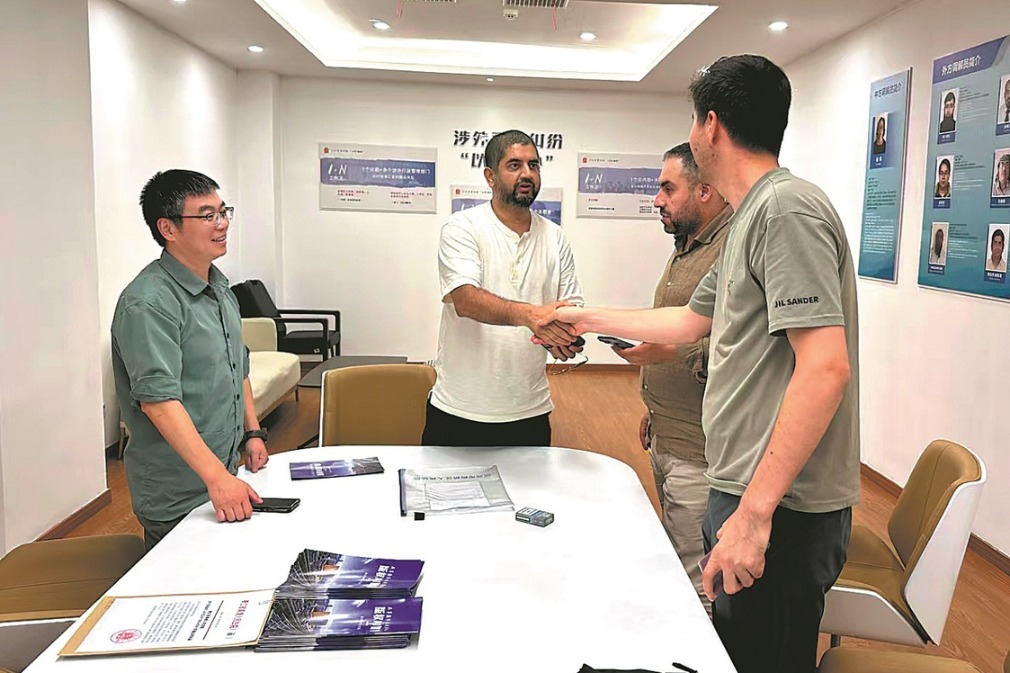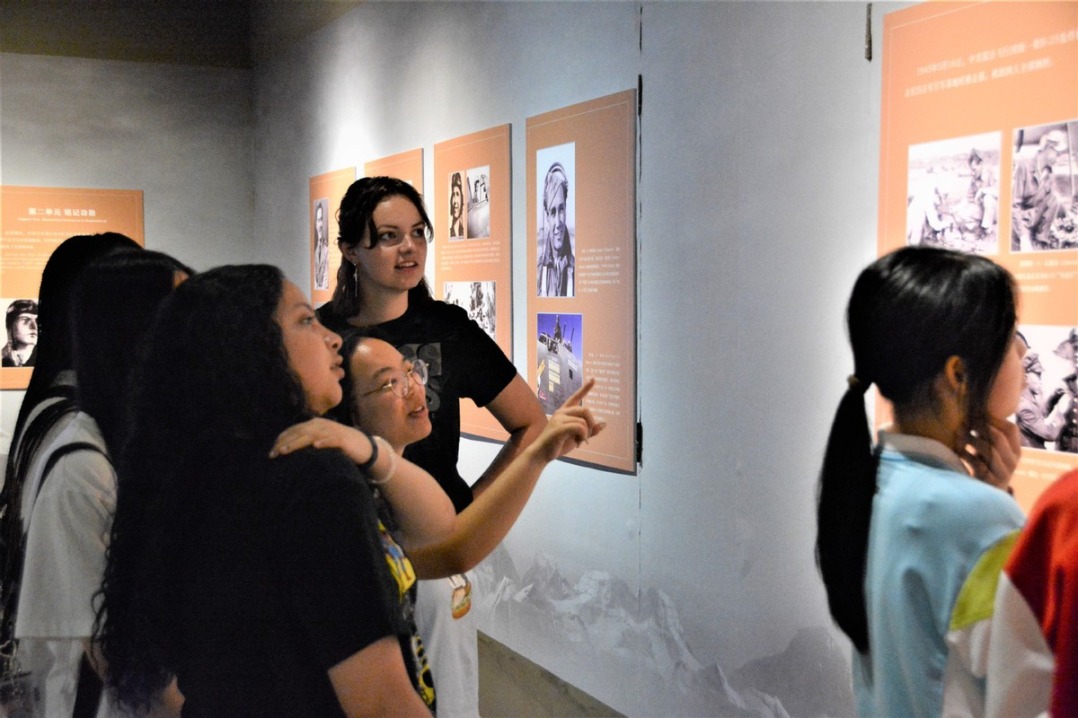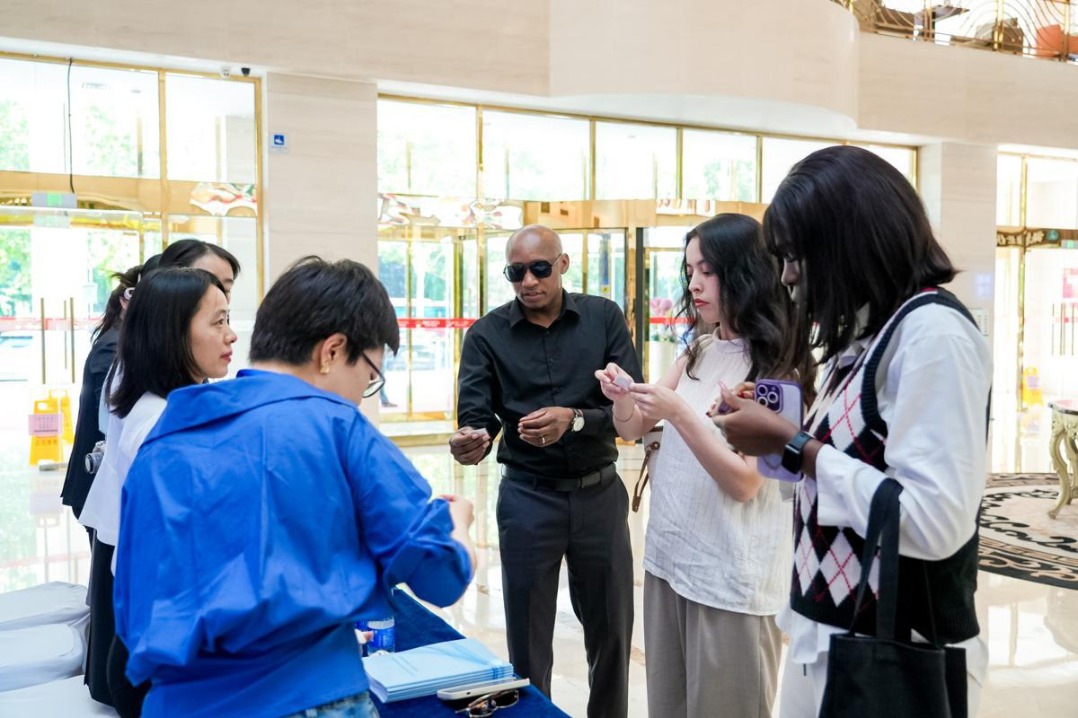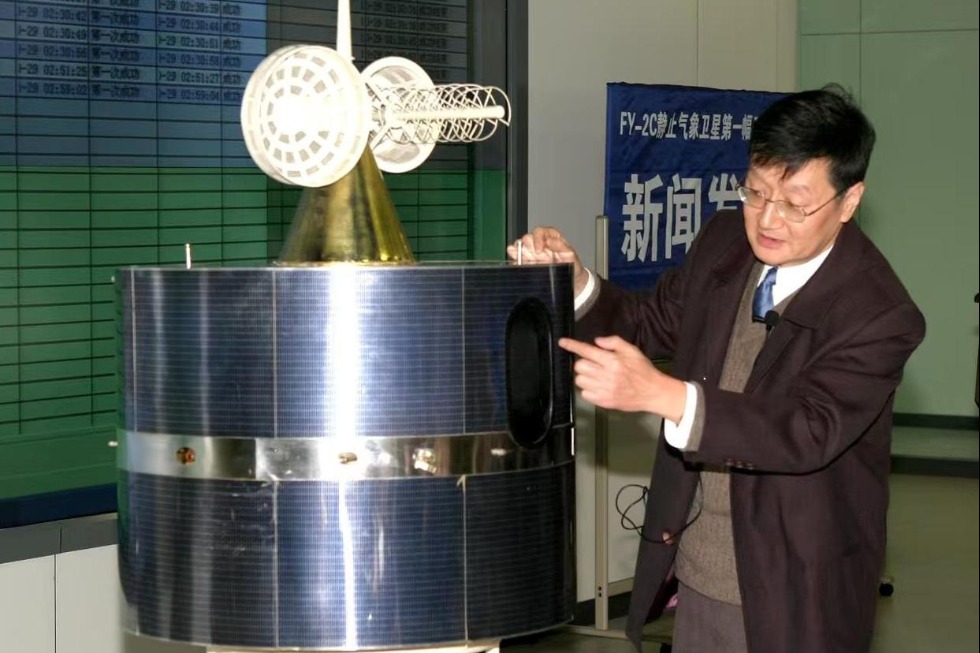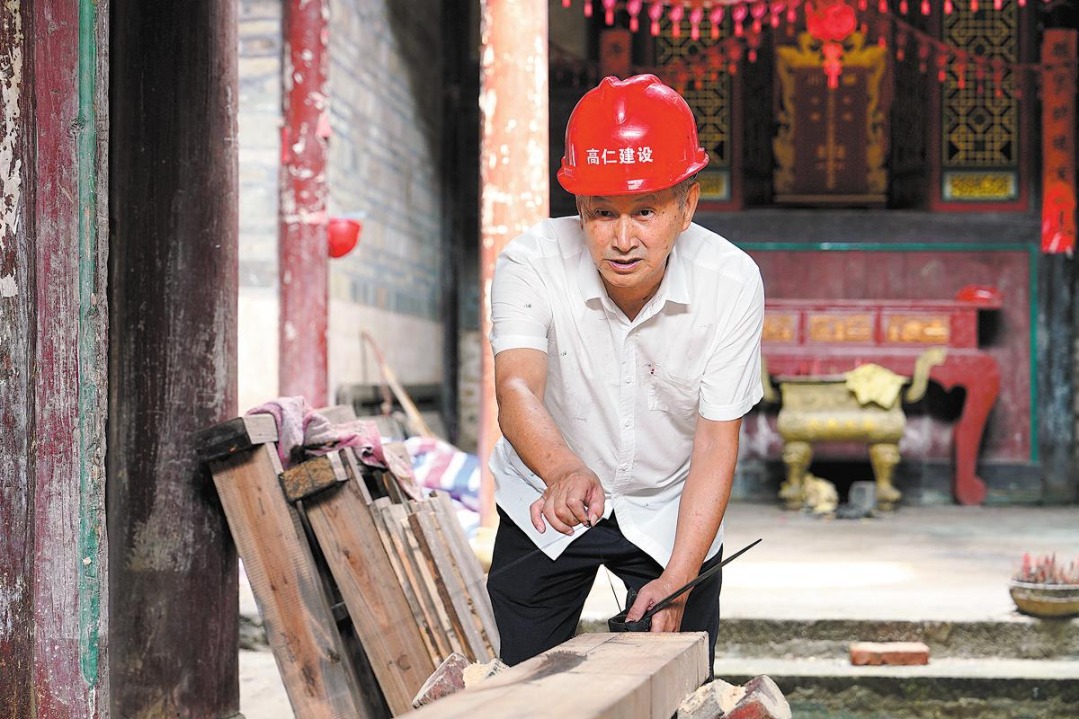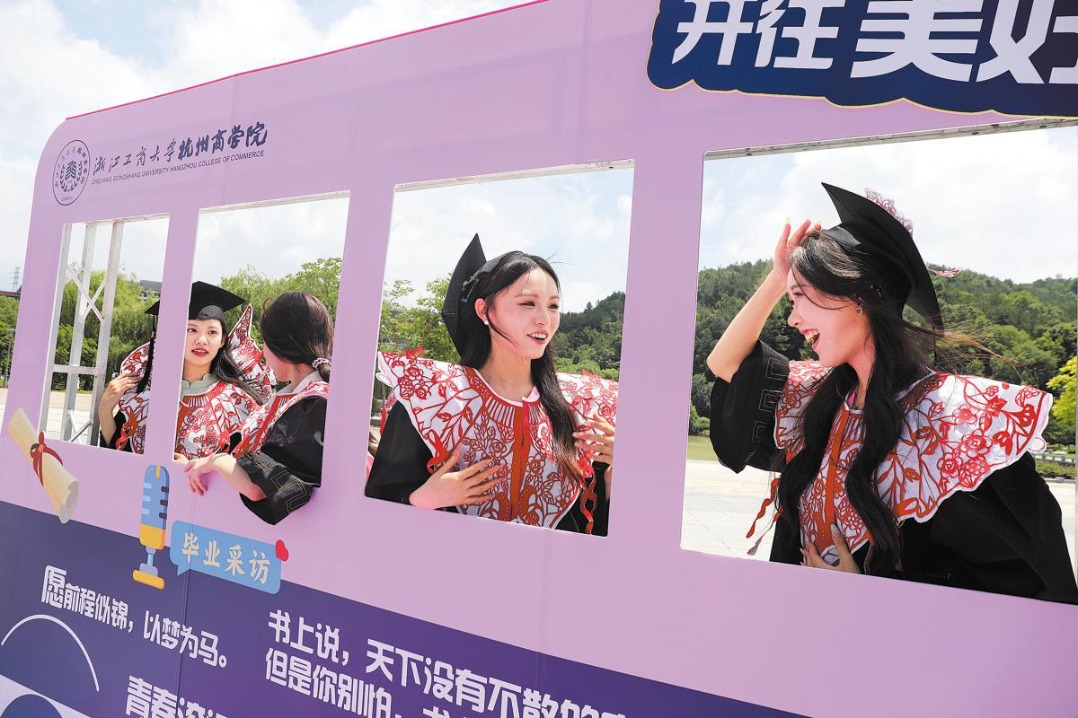Nation enhances aid for children in need
Diverse measures to support vulnerable youth, families

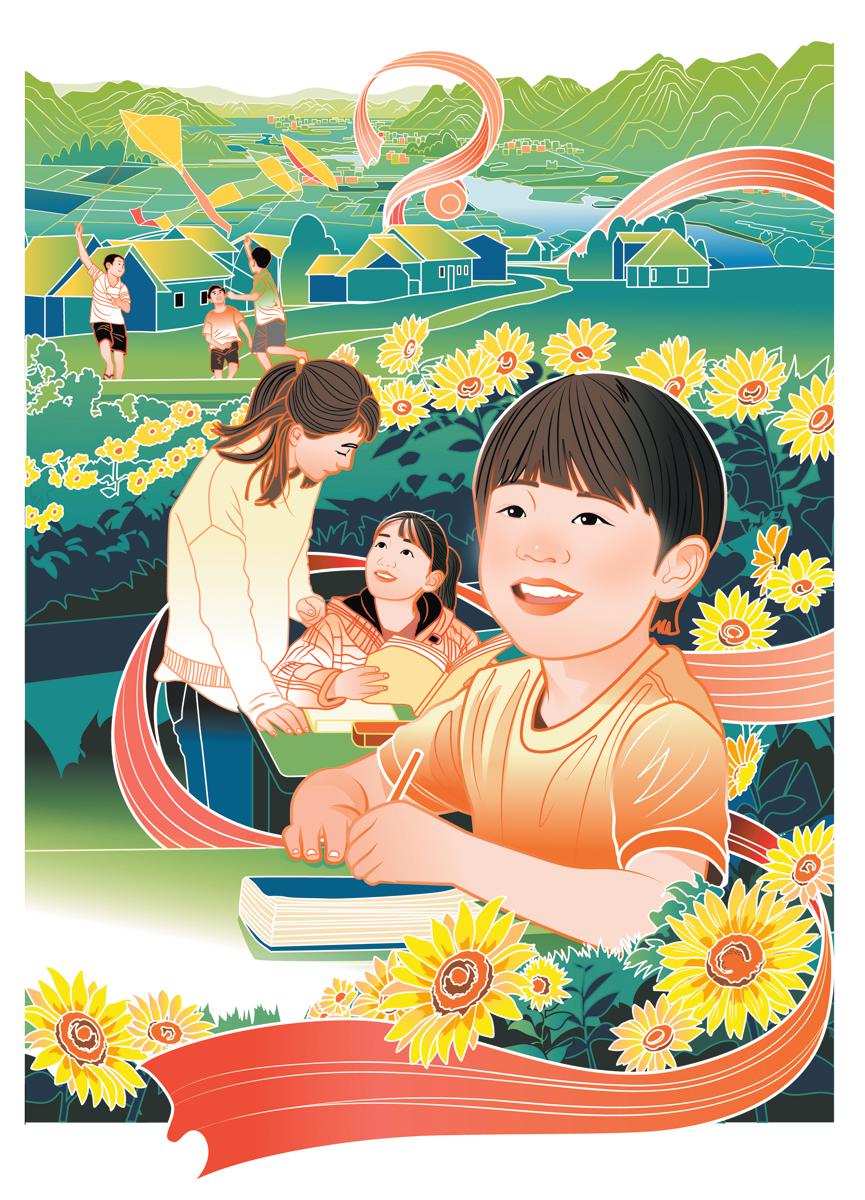
China has optimized efforts and resources to assist children living in difficulty by improving their basic living conditions, healthcare, education and personal security.
In mid-May, the State Council, China's Cabinet, issued a guideline on bettering the welfare of children living in difficulty, including orphans, "de facto orphans" or children who need guardianship, children who can't afford medical services or education due to poor family financial conditions, children having problems of integrating into the society because of disabilities, and those being abused, abandoned or injured due to improper family custody.
The group also includes migrant children moving from their hometown to their parents' working or living places and facing living difficulties, problems of getting access to certain social services and benefits like healthcare insurance or education due to restrictions of hukou — the permanent household registration — and left-behind children without sufficient family custody.
The guideline urges governments of all levels to improve the basic living conditions of children in difficulty by streamlining administrative procedures of granting the children minimum living allowance and offering them temporary assistance in emergencies. Local authorities are encouraged to expand their assistance for children living in difficulty from material supplies to emotional support.
Under the guideline, local authorities are required to optimize the medical services to children living in difficulty, for example, making efforts to provide the nation's basic healthcare insurance program to migrant children.
The local authorities should increase public rehabilitation services supply to children with disabilities by tightening the management of designated rehabilitation assistance houses and bettering the quality of rehabilitation services. Hospitals, rehabilitation houses for disabled children and children's welfare institutes are encouraged to share their resources to better serve the children living in difficulty, according to the guideline.
Education is stressed in the guideline, which requires local authorities to guarantee migrant children get equal access to universal education and improve special education for children with disabilities. For orphans, "de facto orphans" and children whose families have financial difficulties, the local governments should support them to receive mandatory education by giving them study and living subsidies.
Minister of Civil Affairs Lu Zhiyuan said in a recently signed article in People's Daily, one of China's major news outlets, that improving the welfare of children living in difficulty is of great importance to the children's healthy growth and social advancement.
"The guideline has mapped out a series of policies and measures tackling problems such as insufficient children nursing and caring mechanism and social engagement and improper family custody, and has expanded coverage of assistance and benefits for children living in difficulty to create them a better environment for healthier growth," he said.
Qiao Weisheng, dean of Beijing Children's Welfare Institute, said that about 300 children are now living at his institute, roughly one-third of the peak time.
While over 85 percent of the current children at the institute have severe intellectual or physical disabilities, the institute has not added new abandoned children for the past six years. "The decreasing number of abandoned children shows social progress," he said.
The guideline also put its focus on the psychological health of children living in difficulty, which encourages schools to offer counseling services to children in need. Local authorities should popularize psychological knowledge to schoolteachers and parents to improve their literacy of the kind.
The local authorities should optimize their monitoring and evaluation of the psychological health condition of children living in difficulty and guide schools to perform regular mental health assessments for the children for early detection of emotional or psychological problems.
The guideline said that any illegal behavior of instigating, threatening, inveigling, or making use of children living in difficulty will be strictly punished. Local authorities should get the harmed children properly resettled if they can't return to their previous living environment.
Lu said in the article that in recent years, with the development of China's economy and society and the improvement of medical and health levels, the phenomena of orphans and abandoned infants have significantly decreased. The protection of the rights of left-behind and migrant children has become a focus of social attention.
Meanwhile, there has been a noticeable increase in the demand for services for children with emotional disorders, mental health issues and other problems, which means that the traditional child welfare work needs to be transformed and upgraded.
He added that the ministry will establish a working mechanism to ensure the welfare and benefits of children living in difficulty with joint efforts from the government, families and society, and keep improving the legal protection for the children and guiding social and charitable organizations to engage in the work to help build a children-friendly society.
Qiao, dean of the children welfare institute in Beijing, said, "For the children living here, we are not only bringing them up but offering them rehabilitation services both mentally and psychologically, and personalized education based on their health condition."
He added that the staff members of the institute have also taken the children for socialization training such as watching movies and going shopping at malls to help them better integrate into society in the future.
He said that the institute was listed as a trial unit for a State-level program last year, under which the institute will take explorative steps to open its resources to children outside the institute who live in difficulty due to financial problems, disabilities, abandonment or improper family custody.
According to the guideline, the nation will further optimize the welfare and benefits of grassroots workers engaged in caring for children living in difficulty and improve their working ability, professionalism and skills through training programs.
The nation will also improve the legal protection for children living in difficulty by identifying them with scientific standards and releasing or amending laws or regulations to better protect their rights.
chengsi@chinadaily.com.cn

















